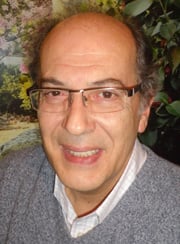Rural Round up: Uniting European rural GPs
español

Dr José Lopez-Albuin, President of EURIPA writes:
One of the greatest challenges that any continent faces may be brining together its medical workforce and in particular its rural doctors. Europe has led other continents in achieving this. In 1995, a group of rural general practitioners lead by Dr John Wynn-Jones held a meeting that resulted, two years later, in the foundation of the European Rural and Isolated Practitioners Association (EURIPA).
EURIPA’s mission statement says that it aims to address the health and wellbeing needs of rural communities and the professional needs of those serving them across Europe irrespective of location, culture or resource. This is a difficult task in a continent that represents 12% of the world’s population speaking 200 different languages, in 50 different nations, of which only half share a solid political link (the European Union). These diverse countries have nominal GDP that range from some of the richest in the world to those as far down as 125th. Their climates range from the frozen arctic circle to arid desert surrounding the Mediterranean.
The European rural population (200 million) represents the 23% of its total population. Some countries are predominantly rural (up to 85% of the population) and others are almost entirely urban. Nevertheless, EURIPA is committed to unite their practitioners and address the particular needs of their different rural communities.
European rural practice, in comparison to other world regions, enjoys the advantage of particularly strong government-supported Primary Health Care. This implies a more efficient delivery of care, and mitigates the inequality of care between urban and rural communities, that may be found in other world regions. A recent survey conducted with among EURIPA members (n=407, from 33 nations) considered the needs and solutions for European Rural Practice. Emergency Care was the educational issue most requested. Others issues included the disparities in access to care, the different health profiles across Europe, working conditions for GPs and professional expectations. Incidentally rural practitioners seem happier in Europe than in other world regions, since 68.2% would like to keep living and working in a rural area.
European rural practitioners have, in EURIPA, a representative and supportive organisation which can provide information, assessment, communication and exchange. We hold face to face meetings and use social media (list server, Linked In, Twitter, etc). Our next meeting will be in Riga (Latvia), in September 2014, at our Rural Health Forum. The theme is “
Rural Medicine: today and tomorrow”. This will complete the areas that have been identified in order to pursue a pan-European Rural Health Strategy and that have been discussed at the past Forums, namely, Quality, Education and Research. (
www.euripaforum2014.eu)
We are helping our Croatian colleagues who will be hosting the 13th WONCA World Rural Health conference, to be held in Dubrovnik in April 2015: a global world rural round up.
EURIPA has become an independent network under the umbrella of WONCA Europe. We participate in European WONCA discussions and meetings; we maintain strong links with other WONCA Europe networks; and we extend our commitment to other world regions.
Ultimately everything we do aims to promote rural health issues and encourage relationships between world rural practitioners.